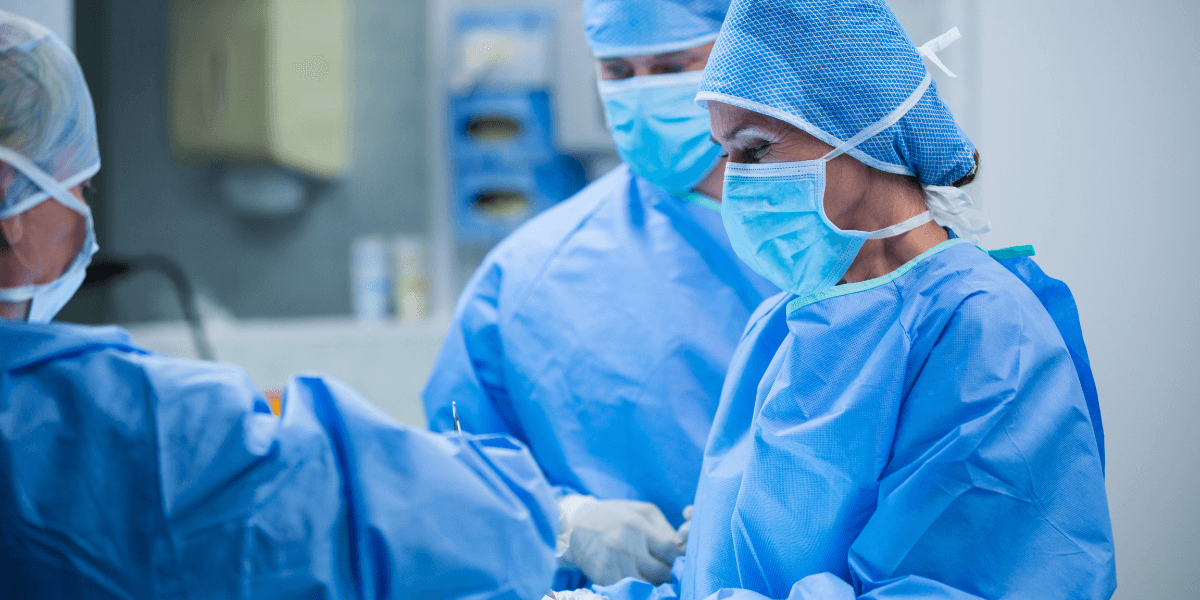


Your abdominal muscles are responsible for keeping the various organs and intestines in their proper places. However, when you overstrain, there are chances that the intra-abdominal tissues are pushed through a weak spot in the muscle. When a part of the tissue forces through the wall of the femoral canal, it is known as a femoral hernia.
Femoral hernias are usually found in the upper part of the thigh close to the groin. It is through this portion that the abdominal contents pass through the femoral canal. Femoral hernias have a high incidence of complications and, in most cases, need emergency surgery. Strangulation is the most common complication, which happens in almost 15%-20% of femoral hernia cases.
In this article, we will discuss everything about femoral hernia, from its causes and symptoms to diagnosis methods and treatment.
A femoral hernia is a kind of groin hernia. It is not very commonly diagnosed and accounts for just 3% of all hernia types. Also known as Femorocele, a femoral hernia appears as a bulge just below the inguinal ligament in the groin area. It has been seen that this kind of hernia is more common in women than men. One of the reasons for this is the wide bone structure of the female pelvis. The incidence of femoral hernia is more in adults than in children.
One of the biggest problems with femoral hernia, or any other hernia, for that matter, is that it is not possible to locate an exact cause for the issue. You might have had a weak area in the femoral canal right from birth, or the femoral canal might have become weak with age to have caused the hernia.
Another factor that might contribute to the femoral hernia is overstraining of the muscles in the femoral canal, which leads to the weakening of the muscle walls. You might have carried out activities that increased the pressure in the intra-abdominal cavity and led to the formation of the hernia.
Here are some probable causes that might result in femoral hernia:
See Also: An In-Depth Guide to Inguinal Hernia Surgery
In many cases, you might not even realize you have a femoral hernia. If the size of the hernia is small or moderate, it does not usually have prominent signs or symptoms, and there is no visible bulge either.
However, when the hernia increases, it becomes more visible and starts causing discomfort. Look for a bulge in the groin area in the upper part of the thigh. The bulging might become worse, causing pain when you work, lift heavy objects, strain in any way, or even stand up. As femoral hernias are close to the hip bone, they can cause pain around the hip area.
Sometimes there might also be some serious cases of femoral hernia where the symptoms are quite severe. Such acute cases are rare and indicate that the hernia is obstructing the intestines, and the condition is called strangulation. This is one of the primary causes of femoral hernia surgery. Critical symptoms of femoral hernia that need urgent professional attention include:
If you notice such symptoms, do note that it is a medical emergency where immediate healthcare intervention is needed.
Complications begin when the hernia gets stuck and doesn’t move back, and this condition becomes painful and serious. When the incarcerated tissue doesn’t get blood supply (strangulation), it leads to tissue death (gangrene or necrosis), a critical medical issue.
If there is immense pain, the hernia goes numb, changes color, or symptoms like fever, nausea, and vomiting appear, seek medical consultation immediately. Delaying will increase the risk factor of femoral hernia surgery.
A thorough physical check-up is enough to diagnose a femoral hernia. The healthcare provider will see and feel it and ask you to adjust your position or cough to understand the condition of the hernia. In some cases, soft tissue imaging like a CT scan or ultrasound might be done to diagnose how far the hernia has progressed and what kind of treatment would be required.
Surgery is the most common treatment for femoral hernia, with hernia repair surgery and laparoscopic surgery being the most common ones. In some complicated cases, traditional open surgery might be required as well. Robotic surgery for hernia repair is also being adopted in many places.
The treatment or the kind of surgery would depend on the condition of the hernia and the patient. You would have to talk to your doctor about your medical history and other details for the best course of treatment.
See Also: How Painful Is Hernia Surgery?
Surgery is by far the most effective treatment for a femoral hernia. Even if your hernia is small or moderate and causes no major discomfort, it is best to consult a professional and have it treated at once to avoid major complications in the future.
If you are a resident in the Anchorage, AK area and are searching for femoral hernia surgery near you, you can contact Far North Surgery. Dr. Madhu Prasad and Dr. Sherry Johnson at the center are renowned board-certified general surgeons with the experience you need for diagnosing and treating femoral hernia in Anchorage, AK.